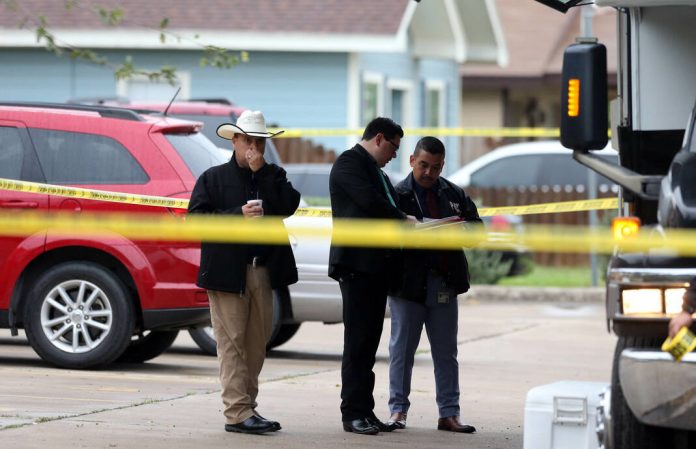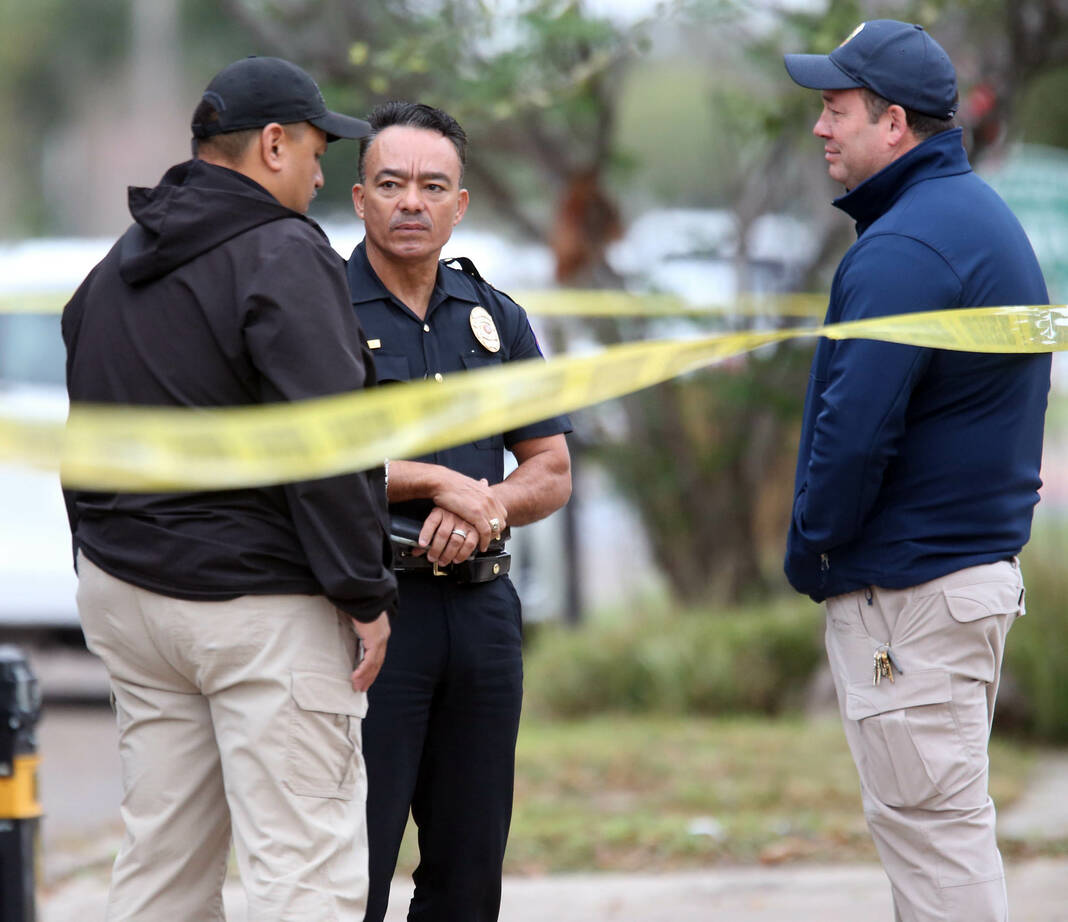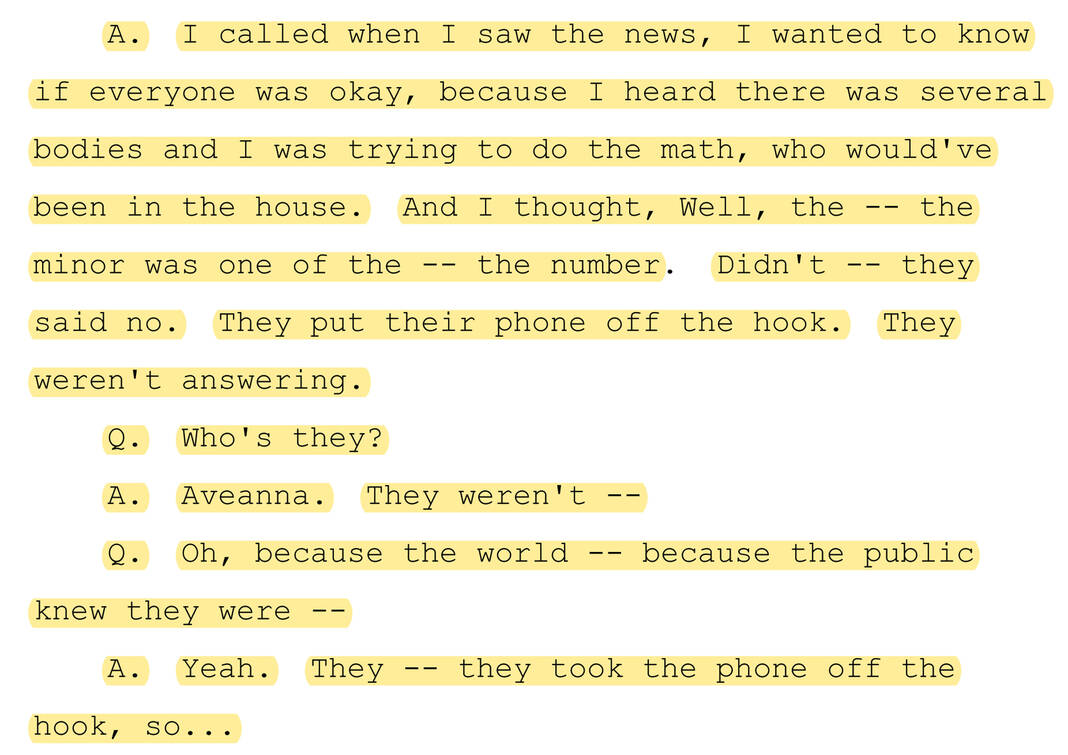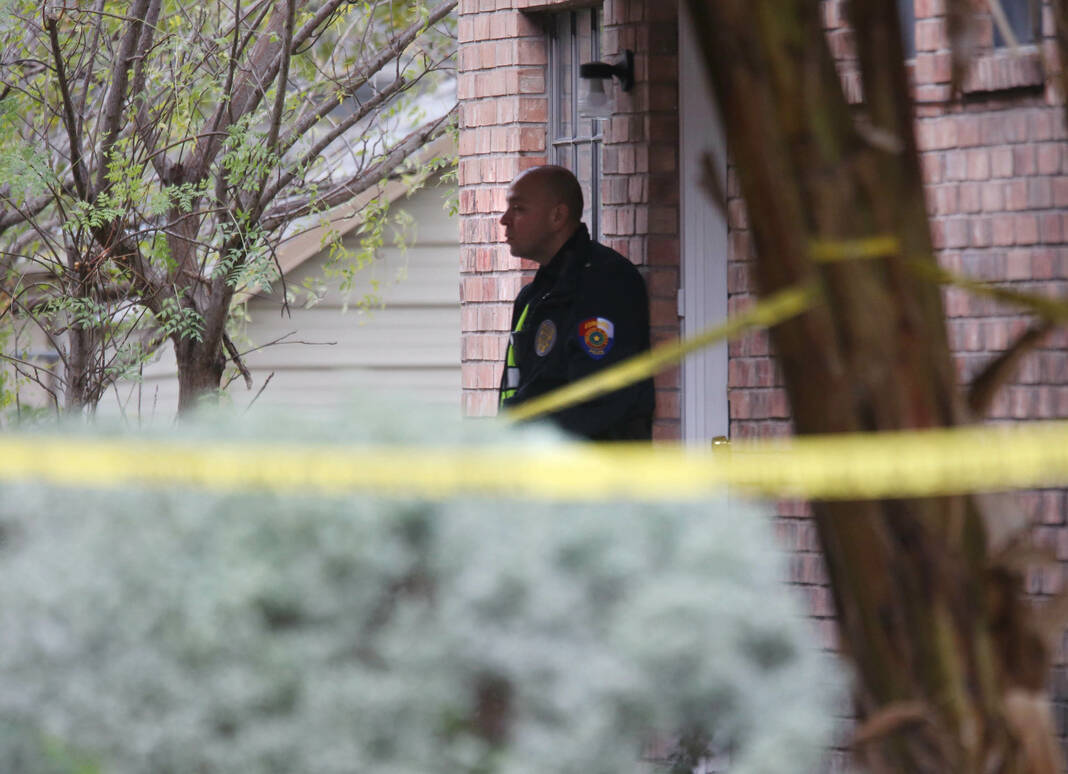
Rebecca Lee Cantu was trapped.
Aged 19 with a toddler who needed 24-hour care, her mother, Magdalena Cantu, 48, and her mother’s boyfriend, Saul Avila, 57, forced the young woman to sleep in their bedroom.
To avoid this unorthodox sleeping arrangement, Roberto Garcia II said during an Aug. 13, 2020, deposition that the young woman would try to stay up as late as possible, often talking to him late into the night, only going to bed after becoming sleepy and drowsy.
He wasn’t the only one.
Garcia said that Rebecca also stayed up late talking with Aaron Cortez, 30, and other nurses at the home, who worked 12-hour shifts to ensure her young son’s breathing machine worked while feeding the child, who needed significant care.
The nurses were apparently the only outlet for the young woman who hid a terrible burden and whose life ended in extreme violence after she shared her secret with Garcia and Cortez: Avila had raped her since she was 14 and was the father of her son.
The abuse escalated on Thanksgiving in 2019 when Rebecca later told Garcia that Avila had raped her again, which set off a chain of events that ended several days after she finally reported his sexual abuse to police: an enraged Avila stabbed and shot Rebecca to death; he stabbed and shot to death Magdalena, who knew about the rape and allowed it; and he shot and killed Cortez before fatally shooting himself in his chest.
Rebecca’s son was the sole survivor of the Dec. 10, 2019 killings in Apt. 5 at 301 W. Kuhn in Edinburg.

WARNING SIGNS
Garcia first began providing care for the child in February 2019, but was warned about the home and Avila even before he worked his first shift at the apartment.
At that time, Garcia worked for a Harlingen company called Little Miracles.
He said during his deposition that the owner warned him about the home, telling Garcia she couldn’t send female nurses to the home because Avila “would call them lesbians.”
During that testimony, Garcia described Avila as a possessive man who looked for “alternative motives,” accusing the nursing staff of creating problems.
The owner at Little Miracles had also told Garcia about the sleeping arrangements, calling it a “weird situation.”
Garcia only worked for Little Miracles until March, which is when he said he switched to Aveanna Healthcare to avoid the drive to and from Harlingen.
On April 16, 2019, Rebecca signed a contract with Aveanna Healthcare for her child’s care.
That contract required Aveanna Healthcare to report allegations of physical or sexual abuse to protective services and law enforcement.
At first, Garcia said he reasoned that the sleeping arrangements may have been necessary because Rebecca’s child needed the other bedroom.
However, by Thanksgiving, he became afraid of the residence when Avila ran upstairs wanting to fight him.
“It was Thanksgiving Day and I offered to — Rebecca was always like — she liked to be fashionably late. And I was — I had to staff on holidays. So I — they were — wanted to go to Elsa to have Thanksgiving lunch with family at 2 o’clock or 3 o’clock,” Garcia said in his deposition.
“And Rebecca was fashionably late. I offered to take the minor and Rebecca, and since her mom and Saul were so — so adamant about showing up on time, Saul, basically, called me out.”
He told Garcia he had no business offering Rebecca a ride.
“All I want to do is drive my truck. And — and I was just pretty adamant about I was — I was trying to extend him the favor,” Garcia said.
For his own safety, Garcia dismissed himself that day and figured since he left in the middle of his shift that Rebecca, who was his boss, not Avila or Magdalena, would not want him to come back.
Garcia also told Aveanna that day about what happened and said the company told him not to worry about it.
Then, on Dec. 9, a day before the murders, Rebecca told Garcia about the rapes and that Avila was the child’s father.
Garcia said they had a hard conversation Rebecca didn’t like about why she hadn’t done something more, and then he called Aveanna and he reported the situation. They told him that Rebecca had just previously called prior to him to tell them she didn’t want him there.
Then he said he was leaving and that Cortez, the 30-year-old nurse, was coming in.
Garcia also testified that he was sure Cortez knew about the abuse prior to Rebecca going to police because he had told his brothers, his wife and his ex-wife.
Garcia said Cortez had a duty to report it to police, but instead told Rebecca she needed to report it, which Garcia disagreed with.
The record, however, is clear that Cortez sought clarification from his brother, an officer, about whether he had to report the sexual abuse against Rebecca when she was a minor since she was 19. The Texas Family Code says that a professional must report suspected abuse of a minor within 48 hours.
Garcia said Aveanna never had him fill out a disclosure or incident report, and his testimony noted that the night nurse from Sunday refused to go back to the residence. In fact, Cortez picked up the Monday night shift because it wasn’t staffed after doing training exercises the prior weekend in San Antonio for the Army Reserves.
There were also other signs, like personnel with an ambulance company that picked up the child twice a month for appointments or therapies, and they apparently later told police they knew “this was going on in that house,” according to the deposition.
Then he saw the news and called Aveanna. He said he wanted to know if everyone was OK because he heard there were several bodies. Garcia testified he was trying to do the math and figure out who was in the house. He wanted to know if the child was one of the bodies.
“They put their phone off the hook,” Garcia said. “They weren’t answering.”

THE VERDICT
Two months after the senseless killings, Maria Teresa Andrade, heir of Rebecca’s estate and legal guardian of her son, along with Stephen Cantu, Magdalena’s son, filed the lawsuit against a number of defendants. The defendants included Aveanna Healthcare, Avila’s estate, his wife, Oralia Avila, Isaac Guzman, an Aveanna supervisor who Garcia and nurse Michael Cano warned about the situation in the house, and the estate of Cortez.
All of the defendants except for Aveanna Healthcare were non-suited.
On Aug. 22, the case went to trial.
Four days later, the jury ruled.
The panel found Aveanna Healthcare was negligent for the killings because employees of the company knew about the “unique” and “dangerous” situation in the apartment about a month prior to the murders.
According to the lawsuit, the healthcare company was aware of the sexual abuse allegations by Dec. 4, 2019 and failed to report them to police.
That’s the day Cortez’s brother, who is a police officer, provided a sworn statement to police. Two days later, on Dec. 6, 2019, Rebecca made her initial report.
However, a month before the murders, on Nov. 10, 2019, Cano warned Aveanna that there was a violent animosity between Cortez and Avila.
“RN Michael Cano testified that Saul Avila had told him ‘there was going to be problems in the future,’ and that he had warned Isaac Guzman at least 30 days before the tragic deaths of Rebecca and Magdalena to remove Aaron Cortez from the apartment,” the lawsuit stated.
Cano took the warning seriously and said Aveanna created danger every time it sent Cortez to provide medical care for the child, according to the lawsuit, which said Cano also testified that Aveanna “never did anything” and that it was “stupid and so dumb and reckless.”
“Nurse Cano testified that Aveanna did this because ‘they didn’t want to lose revenue,’” the lawsuit stated.
Following the trial, the jury found Aveanna negligent and ordered the company to pay $15.75 million for Rebecca’s death.
Jury awards $16M in lawsuit stemming from Edinburg triple homicide | MyRGV.com
It awarded her son $820,000 and Magdalena’s son, Stephen, $20,000.
That was just the initial monetary verdict.
The jury also deliberated punitive damages and awarded another $3 million to be paid for Rebecca’s death, with 90% of that going to her estate and 10% going to her son.

IT’S NOT OVER
Despite the verdict, there has been a flurry of motions filed.
Aveanna filed an emergency motion on Sept. 2 seeking stay post-verdict proceedings and days later filed notice that it would appeal the verdict.
“In the interest of judicial economy and efficiency, Defendants respectfully request this court stay all post-verdict proceedings until the appellate issue regarding the potential dismissal of Intervenor’s claims has been resolved,” the motion stated. “Additionally, the decision of the Court of Appeals will likely guide this honorable court in how to manage the judgment of this complicated legal matter.”
The plaintiff attorneys responded on Sept. 6, telling the court that Aveanna has failed to inform the court of what the emergency is; how the stay would address the emergency; and which rules would allow the stay, as well as whether the law compels the requested emergency stay.
“The only justification offered by defendants for an emergency stay is judicial economy and efficiency,” the motion stated. “But because neither judicial economy nor efficiency would be enhanced by the 13th Court of Appeals having to hear this case twice or issue two separate opinions.”
They said in the motion that there is no legally valid reason for an emergency stay.
They also accuse Aveanna of misrepresenting to the court that it would not appeal during legal maneuvering regarding a move to sever claims.
“In arguing against the severance, counsel of Aveanna represented to the court, on the record, that Aveanna would not file an interlocutory appeal,” the motion stated. “Instead of keeping its word, it is now apparent that what Aveanna really wanted to do was try its luck with the jury first, and if it lost (as it did), then file an interlocutory appeal and move to put a halt to any further activity in this court.”
The attorneys described this as attempted gamesmanship by Aveanna, which “should not be rewarded by this Court.”
A hearing in the matter is scheduled for late September.



